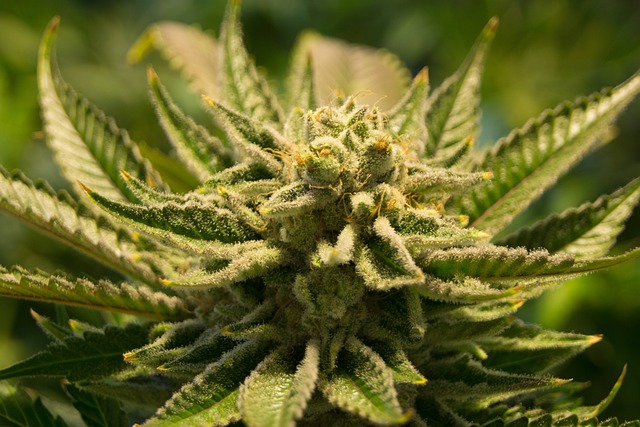How Does Delta-8 Work? A Deep Dive into Its Cannabinoid Effects
Delta-8-tetrahydrocannabinol, commonly known as Delta-8, has gained significant attention in recent years. As a cannabinoid found in the cannabis plant, it offers unique effects that distinguish it from its more famous cousin, Delta-9-THC. This article explores how Delta-8 works, its effects, and its potential benefits.
Understanding Cannabinoids
Are you thinking How Does Delta-8 Work Cannabinoids are chemical compounds that interact with the endocannabinoid system (ECS) in the human body. The ECS plays a role in regulating various physiological processes, including mood, pain sensation, appetite, and memory. Delta-8 is one of over 100 cannabinoids identified in the cannabis plant.
The Endocannabinoid System
The ECS consists of receptors, endocannabinoids, and enzymes. The two primary receptors are CB1 and CB2. CB1 receptors are predominantly found in the brain and central nervous system, while CB2 receptors are more common in the peripheral organs and immune system. Cannabinoids like Delta-8 bind to these receptors, influencing their activity.
Delta-8 vs. Delta-9: What’s the Difference?
Delta-8 and Delta-9 are both forms of THC, but they differ in their chemical structure. This slight variation affects how they interact with the ECS and the effects they produce.
- Chemical Structure: Delta-8 has a double bond on the eighth carbon chain, while Delta-9 has it on the ninth. This difference alters their binding affinity to CB1 receptors.
- Psychoactive Effects: Delta-8 is often described as providing a milder high compared to Delta-9, making it appealing to those seeking less intense psychoactive effects.
- Stability: Delta-8 is more stable than Delta-9, which can lead to a longer shelf life for products containing it.
How Delta-8 Interacts with the Body
Delta-8 binds to both CB1 and CB2 receptors, but its affinity for CB1 is lower than that of Delta-9. This interaction results in a range of effects that users report experiencing.
Psychoactive Effects
Users often describe the psychoactive effects of Delta-8 as more clear-headed and less anxiety-inducing than Delta-9. This makes it an attractive option for those who want to experience a high without the intense effects associated with traditional THC.
Potential Therapeutic Benefits
Research into Delta-8 is still in its early stages, but preliminary studies and anecdotal evidence suggest several potential benefits:
- Anti-nausea: A study conducted in 1995 found that Delta-8 effectively reduced nausea in pediatric cancer patients undergoing chemotherapy.
- Appetite Stimulation: Delta-8 may help increase appetite, which can be beneficial for individuals with conditions that cause appetite loss.
- Pain Relief: Some users report experiencing pain relief, although more research is needed to confirm these effects.
Legal Status and Market Trends
The legal status of Delta-8 varies across regions. In some areas, it is considered legal under the 2018 Farm Bill, which legalized hemp-derived products containing less than 0.3% Delta-9-THC. However, some states have moved to restrict or ban Delta-8 due to concerns about its psychoactive effects.
Market Growth
The demand for Delta-8 products has surged, with a wide range of products available, including edibles, tinctures, and vape cartridges. This growth reflects a broader trend of increasing interest in alternative cannabinoids.
Case Studies and User Experiences
Several case studies and user testimonials highlight the diverse effects of Delta-8. For instance, some users report improved focus and creativity, while others find it helpful for relaxation and stress relief.
Case Study: Delta-8 for Anxiety
A small-scale study involving individuals with anxiety disorders found that Delta-8 provided relief without the paranoia sometimes associated with Delta-9. Participants reported feeling calmer and more at ease.
User Testimonials
Many users share their experiences online, often highlighting the balanced effects of Delta-8. Common themes include enhanced mood, reduced anxiety, and a sense of well-being.
Safety and Side Effects
While Delta-8 is generally considered safe, it is not without potential side effects. Users may experience dry mouth, red eyes, or drowsiness. As with any cannabinoid, individual reactions can vary.
Considerations for Use
When trying Delta-8, it’s advisable to start with a low dose and gradually increase it to gauge individual tolerance. Consulting with a healthcare professional is recommended, especially for those with underlying health conditions or who are taking other medications.
Conclusion
Delta-8 offers a unique profile of effects that appeal to many users seeking a milder alternative to Delta-9-THC. Its interaction with the endocannabinoid system results in a range of potential benefits, from anxiety relief to appetite stimulation. As research continues, a clearer understanding of its effects and therapeutic potential will emerge. For now, Delta-8 remains a fascinating cannabinoid with much to offer those exploring its possibilities.
